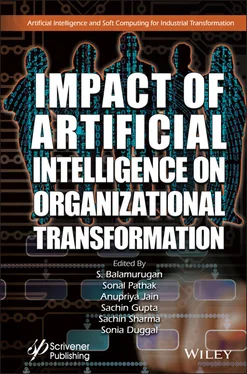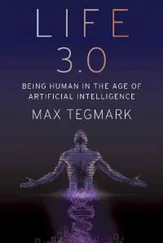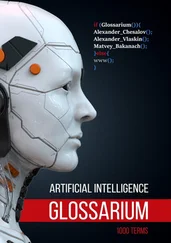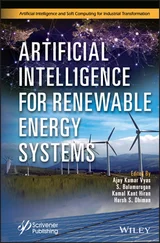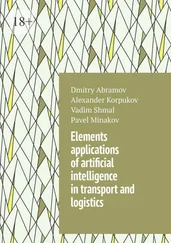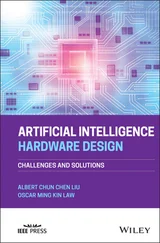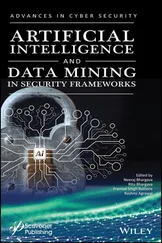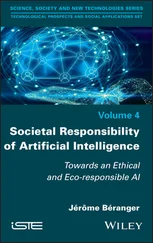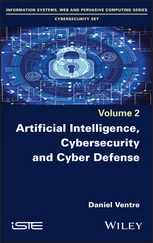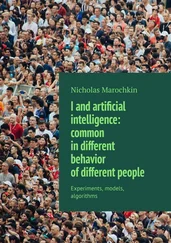Impact of Artificial Intelligence on Organizational Transformation
Здесь есть возможность читать онлайн «Impact of Artificial Intelligence on Organizational Transformation» — ознакомительный отрывок электронной книги совершенно бесплатно, а после прочтения отрывка купить полную версию. В некоторых случаях можно слушать аудио, скачать через торрент в формате fb2 и присутствует краткое содержание. Жанр: unrecognised, на английском языке. Описание произведения, (предисловие) а так же отзывы посетителей доступны на портале библиотеки ЛибКат.
- Название:Impact of Artificial Intelligence on Organizational Transformation
- Автор:
- Жанр:
- Год:неизвестен
- ISBN:нет данных
- Рейтинг книги:3 / 5. Голосов: 1
-
Избранное:Добавить в избранное
- Отзывы:
-
Ваша оценка:
- 60
- 1
- 2
- 3
- 4
- 5
Impact of Artificial Intelligence on Organizational Transformation: краткое содержание, описание и аннотация
Предлагаем к чтению аннотацию, описание, краткое содержание или предисловие (зависит от того, что написал сам автор книги «Impact of Artificial Intelligence on Organizational Transformation»). Если вы не нашли необходимую информацию о книге — напишите в комментариях, мы постараемся отыскать её.
Discusses the impact of AI on organizational transformation which is a mix of computational techniques and management practices, with in-depth analysis about the role of automation & data management, and strategic management in relation to human capital, procurement & production, finance, and marketing.
Audience
Impact of Artificial Intelligence on Organizational Transformation — читать онлайн ознакомительный отрывок
Ниже представлен текст книги, разбитый по страницам. Система сохранения места последней прочитанной страницы, позволяет с удобством читать онлайн бесплатно книгу «Impact of Artificial Intelligence on Organizational Transformation», без необходимости каждый раз заново искать на чём Вы остановились. Поставьте закладку, и сможете в любой момент перейти на страницу, на которой закончили чтение.
Интервал:
Закладка:
Library of Congress Cataloging-in-Publication Data
ISBN 978-1-119-71017-2
Cover image: Pixabay.ComCover design by Russell Richardson
Set in size of 11pt and Minion Pro by Manila Typesetting Company, Makati, Philippines
Printed in the USA
10 9 8 7 6 5 4 3 2 1
Foreword
It gives me immense pleasure to write the foreword to this book. In choosing the impact of artificial intelligence on organizational transformation as their subject, the editors have selected a subject that has great contemporary relevance. Artificial intelligence is here to stay and will continue to flourish. It has come a long way since it was conceived a few decades back. Previously, its application was confined to automation in manufacturing only, but with the passage of time has expanded to cover almost every sphere of human activity.
Organizational transformation does not happen overnight. One has to steadily and meticulously strive and work hard to achieve it. Artificial intelligence is definitely contributing in a big way towards the organizational transformation of both the manufacturing and service sectors. Against this backdrop, I am optimistic that the book will make for interesting reading. I extend my best wishes to the entire editorial team for this sterling academic endeavor.
Prof. (Dr.) Karunesh SaxenaVice Chancellor Sangam University Bhilwara, Rajasthan, India October 2021
Preface
The idea of a book on the impact of artificial intelligence (AI) on organizational transformation occurred to us almost simultaneously. Even though we realized putting together an edited volume on such an ever-evolving topic would not be an easy task, the capacity that AI has to significantly transform organizations is too important to ignore. Therefore, we started deliberating as to how to include scholarly research articles written by eminent academicians on the topic. The outcome of our deliberations can be seen in the quality of the chapters included in this book, which highlight the applications and interlinkages of artificial intelligence with HR function, and its application in the banking and finance sector, along with many other diverse sectors such as energy and sports. One of the chapters even discusses how AI is revolutionizing India byte by byte.
All of us are highly grateful to the authors for taking time to contribute to this book despite the tense situation caused by the lockdown due to the COVID-19 pandemic.
The EditorsOctober 2021
1
Artificial Intelligence Disruption on the Brink of Revolutionizing HR and Marketing Functions
Akansha Mer1* and Amarpreet Singh Virdi2†
1Department of Commerce and Management, Banasthali Vidyapith, Rajasthan, India
2Department of Management Studies, Kumaun University, Bhimtal Campus, Uttarakhand, India
Abstract
Artificial Intelligence (AI) disruption is rapidly revolutionizing the various functions of HR, marketing, finance, etc. Before the advent of AI, several biases occurred on part of humans in terms of hiring, promotion, performance appraisal, compensation, etc. Similarly, in marketing, the customers’ needs and wants are of immense importance for marketers. Traditional marketing generally used feedback from consumers and also the managers had to rely on the market research to interpret the market trends, customers’ needs, tastes, and preferences. But now AI disruption has addressed the HR issues and made substantial improvements in the prediction of precise trends, customer purchase intention, and consumer behavior.
Thus, the paper attempts to unravel how AI is revolutionizing the various functions of HR and marketing. The study elucidates that AI has revolutionized the functions of HR by removing biases in recruitment and performance appraisal and is assisting the organizations in employee engagement and retention. It has made the orientation and onboarding process easy. AI has widely reduced the cost of the organizations with respect to hiring, training, etc. Similarly, in the field of marketing, the study also elucidates that with the advent of technological advancement during recent times (AI), a wealth of information about the consumers, their consumption patterns, and purchase behavior can be traced to a large extent. AI has opened an opportunity for marketers to enhance the effectiveness of the marketing campaigns which can be measured as a return on investment (ROI). AI is enhancing the marketing strategies for businesses. AI disruption is helping in quick and effective decisions. AI is optimizing the advertising and customer segmentation and is also helping companies with better product design to the delight of the customers.
Thus, the managers should look to AI as a tool for empowering and supporting their employees rather than replacing them. Since AI automates various process-oriented and administrative tasks, therefore managers should adopt AI so that they may shift their focus from administrative tasks to cross-functional reasoning tasks. Such a human-machine association will generate various new jobs and will pave way for innovation.
Keywords :Artificial intelligence, disruption, HR, marketing, chatbots, algorithms, machine learning
1.1 Introduction
Artificial Intelligence (AI) that was coined by McCarthy [3] is a branch of computer science encompassing areas such as machine learning (ML) and cognitive computing. AI can also be divided into the categories as strong AI, weak AI, and super intelligent AI. The strong AI or Artificial General Intelligence (AGI) refers to a system with logic, sensory and cognitive abilities that rely on the association of data to produce human brain-like decisions. The weak AI or Artificial Narrow Intelligence (ANI) is the system that focuses on a single task and work in a particular domain [34]. Super intelligent AI is a futuristic system that shall surpass the cognitive abilities and intelligence of human beings.
The study by Carbonell et al . has mentioned that ML is a basic requirement for the generation and development of AI [8]. The prominent ML tools are as follows:
1 a) Neural Network or Artificial Neural Network (ANN): It comprises of many interconnected nodes (like neurons in the brain) and works on the rules that define what kind of output to be generated based on input.
2 b) Support Vector Machine (SVM): It is used for predicting time series predictions.
3 c) Natural Language Processing (NLP): It consists of a) Natural Language Understanding (NLU) and b) Natural Language Generation (NLG). NLU converts the natural language into computer language; therefore, it is termed as Speech Recognition or speech to text conversion. It uses Hidden Markov Model (HMM).
According to Merriam Webster.com, “Artificial Intelligence is a branch of computer science dealing with the simulation of intelligent behavior in computers.”
According to John McCarthy, AI is “the science and engineering of making intelligent machines, especially intelligent computer programs” [22]. AI simulates intelligent behavior in computers. In ML, the machine learns on its own based on patterns and training data sets. It enables machines to process like the human brain.
It is revolutionizing various industries. The study conducted by Xaxis [35] concluded that AI will be the next industrial revolution. The economic impact of AI is estimated to reach 13 trillion dollars by 2030 [7].
A survey conducted by Deloitte on 250 executives on the benefits endowed by AI revealed that 51% of the executives were of the view that AI enhances the features, functions, and performance of the product, 36% of the employees were of the view that AI optimizes internal business operations, 36% of employees indicated that AI frees up the workforce to be more creative by automating tasks, 35% indicated that AI assists in making better decisions, 32% of the employees revealed that AI helps in creating new products, 30% of employees suggested that AI helps in optimizing external processes like marketing and sales, 25% of employees were of the view that AI helps in pursuing new markets, 25% revealed that AI helps in capturing and applying scarce knowledge where needed, whereas only 22% of employees indicated that AI reduced headcount through automation [9]. Figure 1.1depicts the benefits endowed by AI on organizations. Thus, it can be seen that no aspect of management has been left untouched by AI. AI is gaining prominence in various managerial functions like HR, finance, and marketing. AI brings with it personalized experience.
Читать дальшеИнтервал:
Закладка:
Похожие книги на «Impact of Artificial Intelligence on Organizational Transformation»
Представляем Вашему вниманию похожие книги на «Impact of Artificial Intelligence on Organizational Transformation» списком для выбора. Мы отобрали схожую по названию и смыслу литературу в надежде предоставить читателям больше вариантов отыскать новые, интересные, ещё непрочитанные произведения.
Обсуждение, отзывы о книге «Impact of Artificial Intelligence on Organizational Transformation» и просто собственные мнения читателей. Оставьте ваши комментарии, напишите, что Вы думаете о произведении, его смысле или главных героях. Укажите что конкретно понравилось, а что нет, и почему Вы так считаете.
